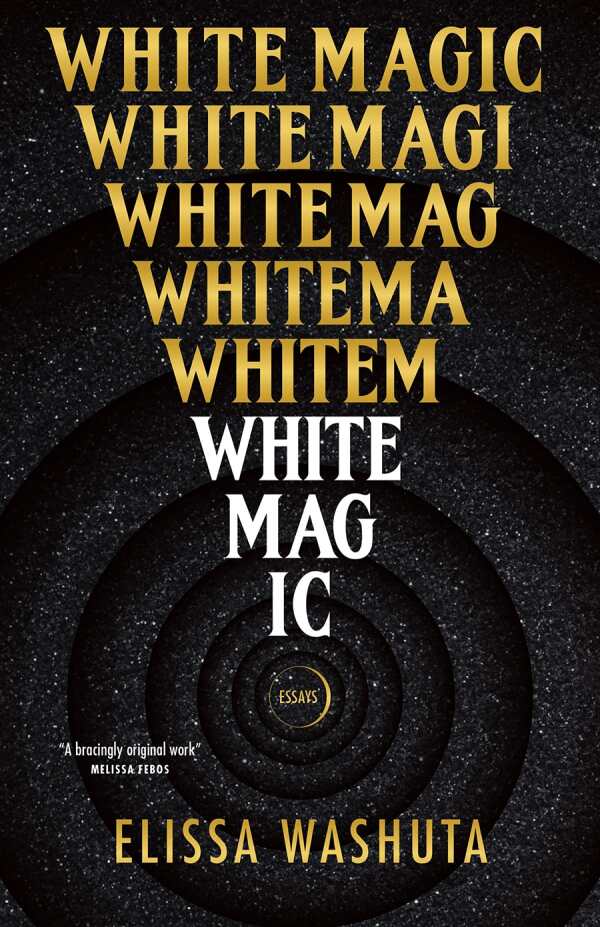White Magic
A collection of essays tackling addiction, sexual violence, mental illness, and the colonization of witchcraft, White Magic is a delight and a challenge.
Elissa Washuta is a refreshing narrator, her prose poetic and sparse. Describing her former draw to alcohol and current sobriety, she states, “Something was lodged in there, clawing. Today, I feel it holding my lungs in its fists, and I can’t sob hard enough to cry it out.” Dark humor is employed with a deft hand, as in a recounting of a hospital emergency: “They say you’re supposed to sense doom when anaphylaxis hits, but I always sense doom.”
Washuta describes her draw to the occult as both an extension of her Native heritage, and as a desire to bring some semblance of order to the chaos around and within her—“I google spells to take the PTSD out of me.” Her criticisms of modern, Insta-worthy iterations of witchcraft are blistering and truthful, though she also acknowledges the difficulty and nuance of ethical sourcing and consumption of spiritualism.
Though not for the faint of heart, Washuta’s frank confrontations with, and acknowledgments of, unhealed wounds are validating. A kinship forms in the shared brokenness, inviting a comparison of where the cracks may line up. “I haven’t memorized the entries in the catalog of demons. I don’t even know the name of the one inside me,” Washuta says of her understanding of the occult, and of herself. Such open admissions of confusion and searching cultivate an intimacy throughout the text, evoking the sense of peeling open a letter from an estranged friend; Washuta’s voice haunts by admitting to being haunted.
A poignant work by a rising essayist, White Magic speaks to the ongoing work of recovery that is anything but magic.
Reviewed by
Danielle Ballantyne
Disclosure: This article is not an endorsement, but a review. The publisher of this book provided free copies of the book to have their book reviewed by a professional reviewer. No fee was paid by the publisher for this review. Foreword Reviews only recommends books that we love. Foreword Magazine, Inc. is disclosing this in accordance with the Federal Trade Commission’s 16 CFR, Part 255.

